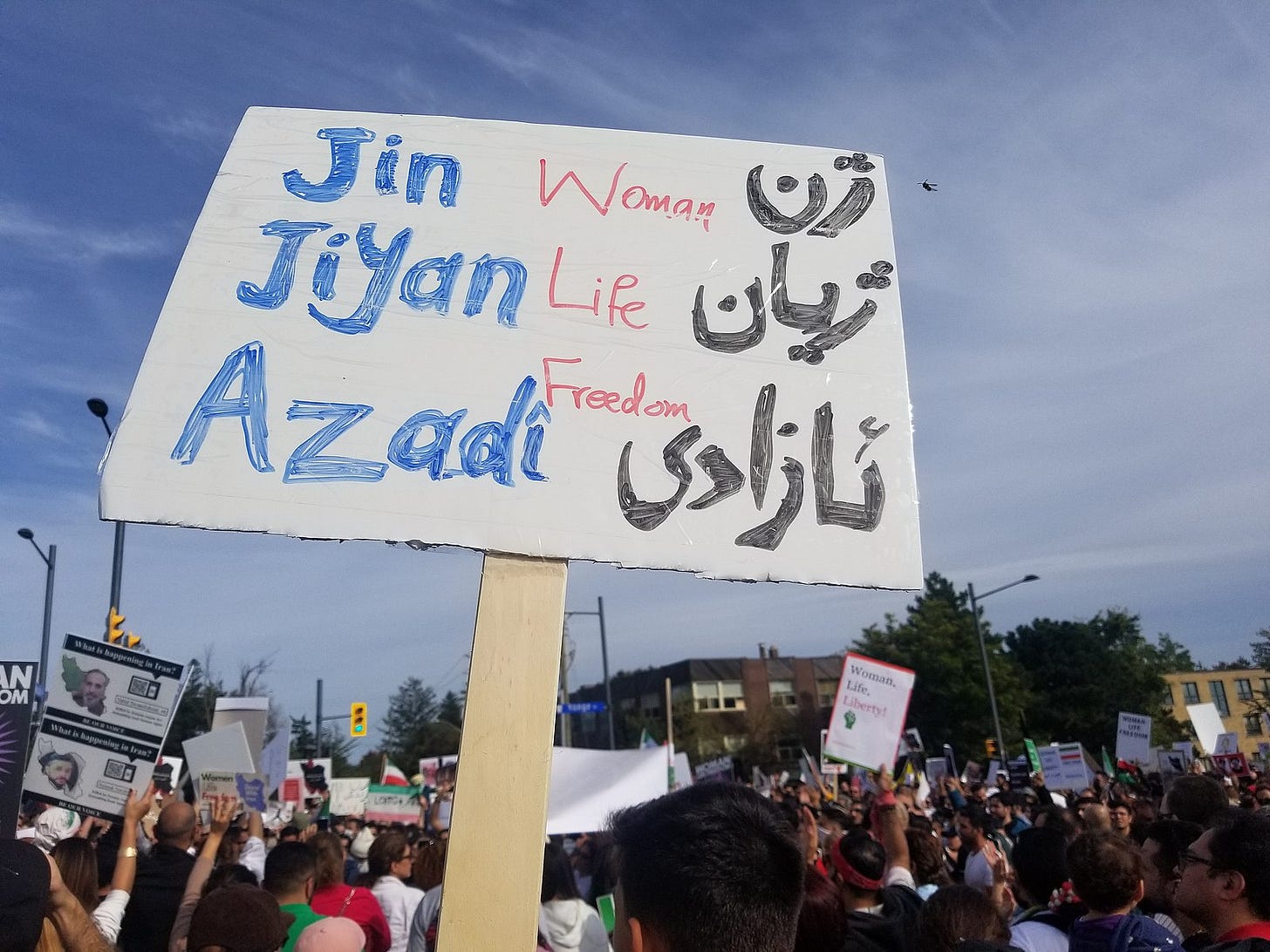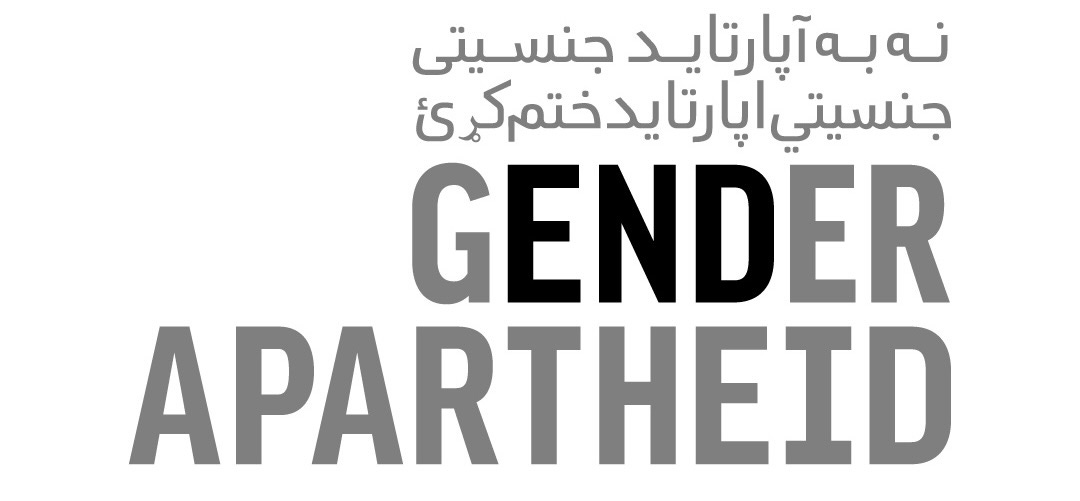End Gender Apartheid Campaign
More than 100 signatories, including Afghan and Iranian women activists and lawyers, have signed an open letter calling for gender apartheid to be recognized as a crime under international law.
While legal academics and practitioners have been calling for the codification of the crime of gender apartheid for decades, the discussion has not yet been mainstream, and global NGOs have hesitated in calling for its recognition, mostly due to resource considerations and the argument that the existing legal framework of gender persecution adequately covers the harms.
What is the definition of gender apartheid? Afghan and Iranian women’s rights defenders have been using the term for years to describe the systematic segregation and subjugation they face under the Taliban and the Islamic Republic. These women, and supportive international lawyers, believe that when “gender” is swapped for “race” in the current definition of apartheid, this accurately captures the oppression they face.
So, what currently necessitates this campaign? Girls in Iran are being mass poisoned in schools across the country and forced out of education with little to no action from the authorities following the surge of the woman, life, freedom movement in Iran. The Taliban continues its forward pace of subjugating Afghan women who are denied education and newly barred from working with the UN in Afghanistan.

Despite this, world leaders are now discussing the possibility of more formally recognizing the Taliban as a legitimate governing body, including before the UN, and many countries are back to business as usual with the Islamic Republic, after a brief pause during mass nationwide protests in Iran from September 2022 - December 2022. The globe is at a crisis point for new strategies and solutions to end forms of extreme discrimination against women, and risks falling into paralysis and acceptance of these practices.
Gender apartheid is different than gender persecution. The end gender apartheid campaign is meant to be complementary, not subtractive, to the ongoing efforts to prosecute the Taliban for gender persecution at the International Criminal Court and elsewhere. Gender persecution is a broadly defined crime, and gender apartheid accurately captures the specific harms that Afghan and Iranian women face. Gender persecution is already sparingly prosecuted as a crime, and convictions are rare to non-existent.
We believe that an increased focus on gendered crimes, including the crime of gender apartheid, will urge prosecutors to think more deeply about gender crimes and focus more on evidence gathering around those crimes. Indeed, international criminal law has both racial apartheid and racial persecution as crimes—there is no clearly articulated reason as to why we cannot also have both gender apartheid and gender persecution as crimes.
While the situation that women face in Afghanistan and Iran has many parallels to the treatment of black South Africans in apartheid South Africa, Afghanistan, and Iran are already the subject of extensive sanctions, and its officials or de facto leaders are under targeted sanctions. However, very few of these sanctions so much as mention gender discrimination or persecution as a basis for the reasoning. Rather, most sanctions have been issued for nuclear proliferation, terrorism, ballistic missiles, or other “hard” security issues.
We believe that human rights are part of hard security issues and that any behavior change measures aimed at these regimes should have the end of gender apartheid at the core of their demands. The crime of gender apartheid also brings into question the responsibility of third-party state and non-state actors who are complicit in the commission of the crime of gender apartheid through their dealings with gender apartheid regimes.
Even if the ultimate goal of the campaign to formally recognize gender apartheid as a crime is not realized for years, this campaign still has tremendous power for its policy impact and moral weight. The gravity of the term “apartheid” is not lost on decision-makers in governments and multilateral institutions who recall the experience of apartheid South Africa. For a younger generation, the campaign will serve as an educational tool to acquaint them with what this framework means and how it can be combated.
On Monday, June 19, UN Special Rapporteur on human rights in Afghanistan Richard Bennett and the UN Working Group on discrimination against women and girls called for gender apartheid to be recognized as a crime under international law. During the interactive dialogue with the SR at the UN Human Rights Council, a cross-regional group of states voiced support for the framing of the situation in Afghanistan as gender apartheid, including South Africa, Namibia, Luxembourg, France, Spain, Netherlands, and Montenegro.
This war on women must end now, and the beginning of the end starts with calling the crimes of the Taliban and the Islamic Republic what they are: gender apartheid.



